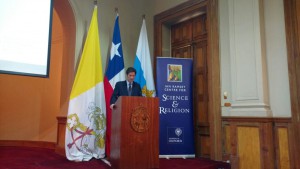Dr. Mariano Asla, researcher of the project “The Brain and the Personal Self”, gave the plenary lecture “Of dreams and nightmares: lights and shadows of the transhumanist program“, in the framework of the final conference “The Place of the Person in the Cosmos” organized by the Ian Ramsey Center for Science and Religion of the University of Oxford (capstone event of the project “Science, Philosophy and Theology in Latin America“).

Within the evolutionary theory framework, the success of a species depends on its ability to adapt to the environment. With a minimum range of action, the misalignment of the body is paid with death or with the reduction of reproductive possibilities. It is only through culture that man has been able to adapt the vital niche to his own needs and to create the instruments to live in environments for which he is not physically prepared. But what would happen if, as the transhumanist program proposes, instead of improving our living conditions or perfecting forms of social organization we could substantially change our own biological nature? Would it be feasible to improve the human essence through genetics and nanotechnologies and make us stronger, more intelligent, morally better or long-lived? In the face of this unprecedented horizon, there are many philosophical questions that demand to distinguish the legitimate aspirations from the foolish desires. This lecture focused on three points: the certainty of confidence in progress, the desirability of an indefinite extension of life expectancy, and the legitimacy of the perfectionist imperative.
